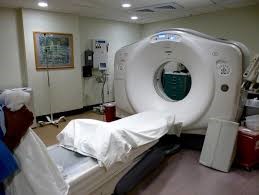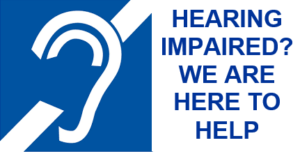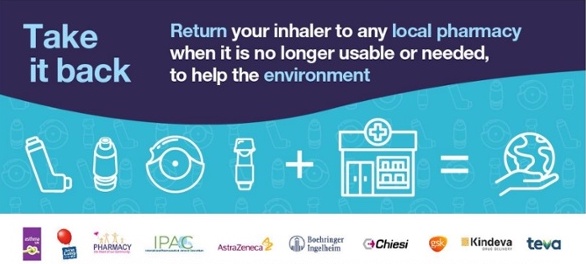
ADHD Assessment and Support Policy – ADULTS & CHILDREN – WITH EFFECT FROM THE 1ST APRIL 2025
We understand that many adults are curious about whether they might have ADHD. We are pleased to advise, there is a clear pathway in Bristol for assessing ADHD. You can find all the necessary information about the Bristol Adult ADHD pathway here.
Commissioned Services in Bristol, North Somerset & South Gloucestershire (BNSSG)
There are currently only 2 fully commissioned services in BNSSG :
Birchwood will provide shared care and ongoing prescribing for the above 2 providers following initial diagnosis and stabilised prescribing. Wait times vary and we recommend you contact the providers or use their websites via the links above for further information.
Private ADHD Assessments and Shared Care with Right To Choose Providers
Patients have the right to go privately or to select a provider on the Right to Choose Pathway. Many people make this decision as they can receive an assessment and diagnosis more quickly.
We are aware that more providers are offering ADHD assessments and then asking GP practices to prescribe the medication. At Birchwood, we do not provide ‘shared care’ or ‘shared prescribing’ with private or Right to Choose providers.
If you choose to go privately or use a Right to Choose provider for an ADHD assessment, you are entitled to do so. However, we do not take on the prescribing of ADHD medication due to the significant amount of variance in referral quality, monitoring processes and the volume that we simply do not have the capacity to manage.
Some of the providers will prescribe for you directly, but it is important that you contact these providers and get their responses in writing. If any of these providers state the GP practice will take on the prescribing this is false. The practice will only do shared care prescribing for AWP and Clinical Partners.
Bristol Children’s ADHD Pathway
Click here for information on the ADHD pathway for children in Bristol. As with Adult ADHD services, Birchwood only prescribes for BNSSG ICB directly commissioned services and not for Right to Choose or Private providers.
School Referral (Preferred Route)
If your child is suspected of having ADHD and is aged 5 or older, the school SENCO can usually assess and refer them. We recommend parents raise concerns through this route first, as the school is best placed to observe your child daily, whereas a GP only gets a brief snapshot in a 15-minute appointment.
GP Referral
If a school referral is not possible, a GP or other healthcare professional can refer your child to community paediatrics. For children with more complex mental health issues, a referral to CAMHS can be made. Please note that a cardiovascular examination is required.
Children Under 5
While children can show ADHD symptoms from an early age, local community paediatric services do not prescribe medication for children under 5 and restrict assessments until they are older. However, families with children under 5 showing ADHD symptoms can receive support through local behavioural interventions, such as the Incredible Years course, which focuses on managing attention difficulties and challenging behaviour. These courses can be accessed without a formal ADHD diagnosis – Link for courses available for Bristol
We appreciate that it can be disappointing to wait longer for a service the practice can prescribe for, but we trust you understand that it is simply not feasible for the practice to deal with multiple different providers with differing policies and procedures.
Transition Period
We recognise this is a change to our prescribing policy. From 14th October 2024 to 31st March 2025, the practice agreed to provide shared care prescribing with a limited number of ADHD providers for new referrals. A small number of patients will already be on the referral pathway with the expectation that shared care prescribing may be required.
To support these patients fairly, we are introducing a transitional arrangement. Shared care prescribing will be offered where all of the following criteria are met:
-
The patient submitted a referral form to Birchwood between 14th October 2024 and 31st March 2025, and has remained continuously registered at the practice.
-
The referral was made to one of the following providers:
-
Where an assessment has already taken place, the patient’s medication is stabilised, and there has been no break in prescribing or contact with the provider exceeding 3 months.
Exclusions
-
Patients referred before 14th October 2024 to any of the above providers are not eligible for shared care prescribing and must continue with private prescriptions.
-
Where a patient does not meet the above criteria, or has had a break in prescribing for more than 3 months, the options are:
-
remain with their current provider on a private basis (arranging reviews and prescriptions directly), or
-
request a transfer via the practice to one of our fully commissioned providers, with whom we can offer shared care.
Additional Notes
-
Patients already receiving shared care prescribing from the practice are not affected by this change.
- Patients may have had a referral submitted from 14th October 2024 to 31st March 2025 and still remain on the waiting list, so No. 3 above will not apply until after they have been assessed.
-
Patients remain responsible for funding private prescribing arrangements during any transitional periods.
-
The practice reserves the right to review its prescribing policy for all providers. Should we no longer be able to support a shared care pathway, we will provide a minimum of 3 months’ notice.
New to Birchwood Patients
We do not accept continuing prescribing (except BNSSG Commissioned providers) where a patient registers with us from the 1st April having been prescribed at a different GP surgery. We do not accept the ongoing prescribing for prescribing commenced by other surgeries as we become the responsible prescriber when you register with us. Patients can contact their provider and arrange prescribing directly or transfer to a provider commissioned by the BNSSG ICB; or ask their previous practice to retain them as an out of area patient if their policy permits.










